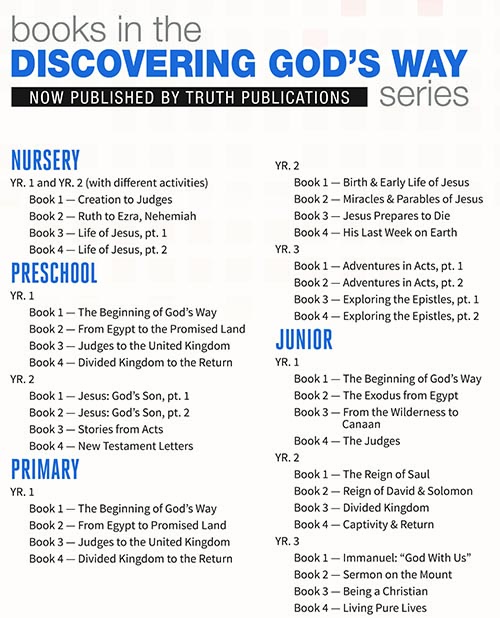

by Tim Matheny
Synopsis: Adding up the stories of the Centurion and the Pharisee in Luke 7 conveys a valuable spiritual lesson.
You may find it surprising, as I did, to learn that the number zero (0) is a fairly recent construct in mathematics, at least in the ways that we use it today. It turns out that using the numeral as a placeholder in a number (like 100) can be traced back to the early ninth century AD in the Arabic world, and its use in Europe did not start until around AD 1200. That may sound old, but given how long society has been using mathematics, that makes 0 a relative newcomer.
Its arrival on the scene brought about changes in many aspects of society. I would argue, in fact, that zero is The Number that Made the Modern World. It did so by establishing the decimal system as the dominant one in mathematics, changing not only weights and measures, but more importantly, allowing for an easy visualization of scale. Scientists could immediately know about just how big a number was, by how many zeroes it had in front of the decimal point; Roman numerals did not allow for such (what, you mean it is not obvious that C is equal to a hundred I's?). They could even create a shorthand, which we today call scientific notation, that would let them do math on a gigantic scale. At the same time, on the right side of what we now call the decimal point, zeroes allowed for a new level of precision, with fractions of incredibly tiny sizes. In business, especially, divisions to the hundredth place allowed for much more precise currency, but in the sciences, it created a previously unavailable level of accuracy. Combine scale and precision, thanks to the decimal system, and you get the ability to travel into space and land men on the moon.
Interestingly, at the same time, we were preparing for the conquest of the moon, the number zero once again played a key role in the remaking of the modern world. This time, instead of being the empty placeholder in a ten-digit system, zero would be one of only two choices in a different numbering system, the binary system. Engineers recognized that they could treat a state of being on or off—say, for instance, in electrical current—as though it were representing a one or a zero. String enough of those devices (initially vacuum tubes, but later in electrical transistors) together, and you could represent numbers in binary format. The next step was the realization that one could literally etch thousands, and eventually millions, of tiny transistors directly into conductive silicon crystals, and soon was born the digital computer. As computers became more complex, we began to represent not only numbers, but alphabets, pictures, audio, and video with these binary codes. The world we know today would simply never have been possible without the two digits—1 and 0—powering all of the systems that augment our lives. It is for no small reason we call this the Digital Age. The tools that are delivering this very article to you, whether you are reading it on paper or online, would not exist without those two digits.
Dear reader, if you have stayed with me this long, you are probably asking, "You do know this is a religious publication, right?" Indeed, I do; please forgive the long preface, but it has a spiritual application to our understanding of a key principle taught by our Lord in the seventh chapter of Luke. I am going to suggest that it is possible to "do the wrong math" and misunderstand what Jesus means by the numbers He employs in a parable meant to illustrate the attitudes demonstrated by three key individuals in that chapter.
Luke 7 begins with the story of a Roman centurion who contacts Jesus through some influential Jews to get Him to heal the centurion's servant. The Jewish elders plead with Jesus to fulfill the request (just why they do so is a fascinating question outside the scope of this article) because the centurion is worthy of it, having loved their nation, and built their synagogue. But as Jesus nears the centurion's house, the centurion sends messengers who deliver a message on his behalf: do not trouble Yourself to come all the way to the house, because I am not worthy to have You under my roof! He then proceeds to assert that Jesus can heal the servant from anywhere because of His ultimate power (using his own military authority as an illustration). Jesus's comment regarding the man who considers himself unworthy: "I tell you, not even in Israel have I found such faith" (Luke 7:9b).
Later in the chapter, Jesus is invited by a Pharisee to a meal at his home. A woman from the city, identified simply as a "sinner," somehow gets into the house and wets Jesus' feet with her tears, wipes them off with her hair, and anoints His feet with ointment from an alabaster flask (probably indicating that the ointment was expensive). We are treated to the Pharisee's inner monologue: "If He knew what kind of woman this is, He would never associate with her."
Jesus responds to the unspoken thought (!) with a simple story for the Pharisee: "'A certain moneylender had two debtors. One owed five hundred denarii, and the other fifty. When they could not pay, he cancelled the debt of both. Now which of them will love him more?' Simon answered, 'The one, I suppose, for whom he cancelled the larger debt.' And He said to him, 'You have judged rightly'" (Luke 7:41-43)
And here is where our math can send us sideways. I cannot tell you how many times I have heard (and have discussed myself) just how much 500 denarii was versus how much fifty denarii was. It makes sense when we look at it with zero as a placeholder—it is ten times as much! By that method of interpretation, what Jesus is saying is, if you think your sins were ten times worse than somebody else's, you will love him ten times more than another whose sins were not as bad! Right? If that feels wrong to you, and it does to me, maybe it is because we have misunderstood based on of our mathematical perspective.
Remember that our modern comparisons based on the zero were not going on at this point. I would suggest that what the truly spiritual first-century mind would have considered upon hearing this was not a comparison of scale, but rather a very binary choice. One debt was payable, albeit with hard work, while the other was essentially unpayable, and would most likely result in imprisonment or slavery for the debtor and perhaps even for his family! This understanding of the parable's meaning seems to fit better with Jesus' subsequent, very binary, comparison of Simon and the sinful woman: "Do you see this woman? I entered your house; you gave me no water for my feet, but she has wet my feet with her tears and wiped them with her hair. You gave me no kiss, but from the time I came in, she has not ceased to kiss my feet. You did not anoint my head with oil, but she has anointed my feet with ointment. Therefore, I tell you, her sins, which are many, are forgiven—for she loved much. But he who is forgiven little, loves little" (Luke 7:44-47). Simon had considered Jesus a nice addition to a dinner party, but the woman saw Jesus as her lifeline.
We are not so different in our potential responses to Christ. It is easy to treat Jesus as the Great Enhancer, instead of seeing Him as the Great Rescuer. For example, a recent award-winning, chart-topping country song about a baptism, while by and large a pleasing and surprising development in today's world, contains the telling line, "I'm saved, and I am stronger." Certainly, "When nothing else could help, love lifted me" does not fit our self-esteem culture.
How do I perceive who I was and who I am before and after the work of Christ? Is Jesus making me better, or is He simply making me? Do I consider myself a five who is becoming a ten, or am I a self-made zero being remade into the image of the One?
I think about Paul's at first ironic, and then quite direct, observation on certain individuals challenging his apostolic authority at Corinth: "Not that we dare to classify or compare ourselves with some of those who are commending themselves. But when they measure themselves by one another and compare themselves with one another, they are without understanding" (2 Cor. 10:12). May God help me to learn how to use the right kind of math: comparing myself not to others, but to Christ, so that I may learn my complete moral poverty and learn to weep at His feet.
Author Bio: Tim has worked for Apple for 28 years, and is passionate about technology, but his first love is for the Lord and his family. He and his wife, Margaret, are members of the Brentwood congregation in Nashville, TN. He can be reached at matheny@gmail.com


